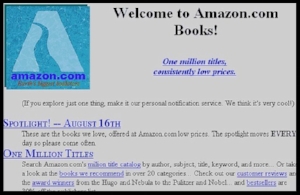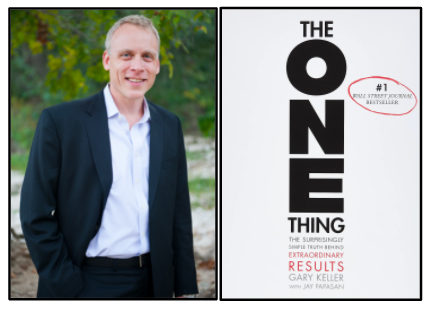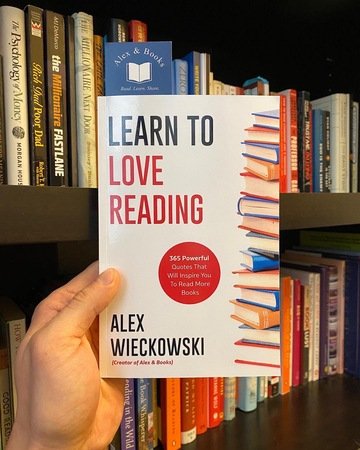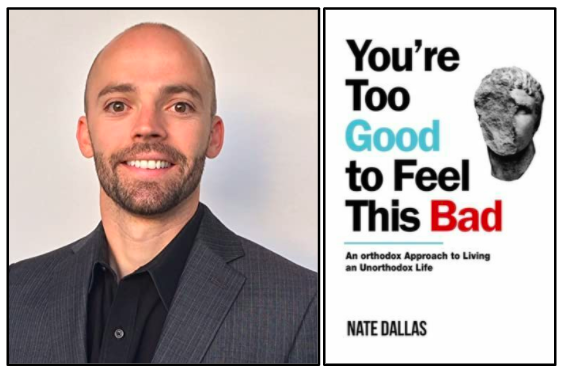When Elon Musk and Mark Zuckerberg give a book positive praise, you know it is worth reading. Zero to One is that book. Written by Peter Thiel, the billionaire who co-founded PayPal (he and Elon worked at PayPal together) and Palantir. He also made the first outside investment in Facebook and funded companies like LinkedIn and SpaceX.
Thiel's book is about creating something new and fresh, instead of making an existing product better. To make something out of nothing, hence the meaning of the book's title.
Here are 5 business lessons learned from Zero to One:
1) Go From 0 to 1, Not 1 to n
“Of course, it’s easier to copy a model than to make something new. Doing what we already know how to do takes the world from 1 to n, adding more of something familiar. But every time we create something new, we go from 0 to 1”
Going from 1 to n is copying an existing model, but going from 0 to 1 is creating something new and fresh. When Bill Gates created Microsoft Word, his company went from 0 to 1. When Larry Page and Sergey Brin created Google, their company went from 0 to 1.
However, when Microsoft tried to copy Google and created Bing, that was a 1 to n moment. Similarly, when Google tried to copy Microsoft and created Google Docs, that was a 1 to n moment.
Thiel notes the importance of startups because most startups focus on creating something new, going from 0 to 1. Startups embrace risk and have a mission to improve the world, while established corporations shy away from risk and have a mission to improve their revenue.
Peter Thiel, the author of Zero to One.
2) Avoid Competition
“Your company could create a lot of value without becoming very valuable itself. Creating value is not enough–you also need to capture some of the value you create. This means that even very big businesses can be bad business”
Thiel uses the airline industry vs Google to demonstrate his idea.
Airlines create hundreds of billions of dollars of value each year but the airlines only made 37 cents per passenger trip. Compare that to Google, which creates less value but captures more of it. In 2012, Google brought in $50 billion in revenue while airlines brought in $160 billion. However, Google kept 21% of those revenues as profits.
In fact, Google makes so much money that it's worth 3x more than every U.S. airline combined. This is because airlines compete with each other while Google has little to no competition.
If you've ever taken an economics class, you've learned about perfect competition.
In perfect competition, the market achieves equilibrium when producer supply meets consumer demand. If there is money to be made, new firms will enter the market, increase supply, drive prices down and thus eliminate profits for others.
This is what is happening to the airline industry. Last year 18 airlines were established; the year before that, 38 airlines were established.
Because airlines are, for the most part, an undifferentiated commodity business (many carriers can get you to the same destination), they compete mainly on the basis of price and availability.
This benefits the consumer in the short term because it keeps prices low but it hurts the company in the long term. No company can make a significant economic profit because if there is money to be made new companies will enter and eat away at any additional profit.
3) Why Monopolies Are Good
“Monopolies drive progress because the promise of years or even decades of monopoly profits provides a powerful incentive to innovate. Then monopolies can keep innovating because profits enable them to make the long-term plans and to finance ambitious research projects that firms locked in competition can’t dream of”
When Thiel mentions monopolies, he isn't referring to illegal bullies or government favorites, but rather creative monopolies. These monopolies give customers more choices by adding new categories of abundance to the world.
The government knows this, that's why they work hard to create monopolies (by granting patents to inventors).
Take Apple's iPhone as an example. Apple helped create the smartphone market with the iPhone and was rewarded with a monopoly share of the smartphone industry. Customers were happy to pay more to get a smartphone that actually worked.
Google is another good example. They have a monopoly on the search market. In May 2014, Google had 68% of the market while Microsoft had 19% and Yahoo had 10%. Since Google has a safe and reliable stream of revenue, they have been able to invest in new products and services. Google has expanded into wearable computers, Android phones, and driverless cars.
The airline industry depicts a perfect competition scenario, the top 3 U.S. airlines are all basically the same and thus have almost equal market share. Google, on the other hand, has been able to monopolize the search market and owns more than two-thirds of the market.
4) Characteristics of a Monopoly
“Every monopoly is unique, but they usually share some combination of the following characteristics: proprietary technology, network effects, economies of scale and branding”
The first characteristic, proprietary technology, is the most important. It is the most sustainable advantage a company can have because it makes your product difficult or impossible to replicate. Your technology should be 10 times or 10x better than your closest competitor.
PayPal's technology was 10x better because instead of having to mail a check that could take 10 days, PayPal let buyers pay the very same day.
Amazon's homepage in 1995. It had over one million titles to offer to customers.
Similarly, Amazon was 10x better than bookstores because they had 10x more books than a typical retail store. A large retailer could have 100,000 titles in their store, meanwhile, Amazon offered millions of titles. This is because Amazon didn't have any inventory, instead, they simply requested the title from its supplier whenever a customer made an order.
The second characteristic is network effects. This means the product becomes more useful as more people use it. For example, if all your friends and co-workers are on LinkedIn, it wouldn't make sense for you to join a different professional social network.
The third characteristic is economies of scale. As a business gets bigger, the fixed costs of creating a product can be spread out and the cost per unit decreases. This is especially beneficial for software companies. Once the product is created, the marginal cost of producing another copy of the product is close to zero.
The last characteristic is branding. Creating a strong brand is a powerful way to claim a monopoly because you want consumers to think of your brand and feel connected to it. However, a monopoly cannot be built on brand alone. In 2012, the new CEO of Yahoo! rebranded the company in hopes of making it cool again but didn't announce any new product improvements. Yahoo! has since been sold to Verizon.
5) Building a Monopoly
“Brand, scale, network effects, and technology in some combination define a monopoly; but to get them to work, you need to choose your market carefully and expand deliberately”
Your company should start with a very small market, this doesn't mean a nonexistent one. An ideal market is a small group of people concentrated together and served by few or no competitors.
In 1999, eBay had a few thousand users who were high-volume "Powersellers." PayPal focused on serving these individuals, and within three months, 25% of them were using PayPal.
The next goal is to scale up. Once your startup dominates a niche market, then you should expand into a related or slightly broader market. Amazon started with selling books. It then expanded into CD's, videos and software. It continued to add new categories and is now known as the everything store.
Today, eBay sells everything from toys to clothing to cars. But, it didn't jump straight into selling sports cars. EBay launched it auction marketplace in 1995 and focused on niche markets such as Beanie Babies.
Lastly, being the first mover is good, but being the last mover is better. When a company is the first entrant into a market, they take significant market share while other companies scramble to catch up. But this is only a tactic, not a goal.
The last mover is the company that makes the last great development in a specific market and enjoys years or even decades of monopoly profits. Contrary to popular belief, Google wasn't the first search engine. WebCrawler was created in 1994, Yahoo in 1995, and Ask Jeeves in 1996.
It wasn't until two years later, in 1998, that Google was founded. And the rest, as they say, is history.
These are just a few of the lessons learned from Zero to One. If you're interested in learning more, click the link below.
Get the book here: Zero to One
If you enjoyed this article, consider supporting our site or signing up for our monthly newsletter. Thank you!
Reader freebies:















